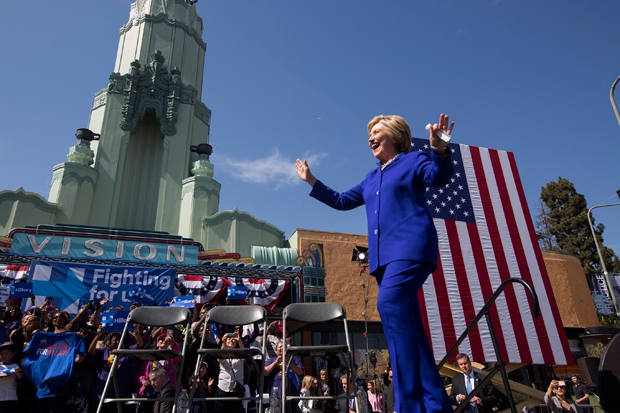Washington
The outcome of America’s elections might become clear in the first minutes of vote-counting next Tuesday night. That is because Americans are as moody and fussy about voting as they are about everything else. Their elections depend on who is excited enough to show up at the polls and who is too depressed.
Black voters, historically loyal to the Democrats but hard to bring to polling stations, went into paroxysms of enthusiasm over Barack Obama and in the last election voted at higher rates than white voters. Born-again Christians used to bring the Republican party victory after victory, but more recently they have decided the party doesn’t mean what it says about Jesus, and have spent their election days at home. If, when Kentucky closes its polling stations at 6 p.m., turnout is high in the redneck counties, Donald Trump might be the next leader of the free world. If, when Georgia begins counting an hour after that, heavily black Atlanta votes as it did for Obama, Hillary Clinton might be invincible. What makes this year different is that you can start trying to figure these things out right now. Ballots are already being cast. Thirty-seven American states have adopted early voting, either through mail or at specially designated stations. By the time election day rolls round, a third of Americans will have cast their ballots this way. That is a great thing for those who enjoy predicting elections. It is a bad thing for democracy. It’s not legal to release the early results, but political consultants and journalists are straining to get a rough outline of what’s going on. The New York Times published a detailed study showing that Democrats had asked for more early-voting ballots than Republicans in North Carolina, a state narrowly won by Republican nominee Mitt Romney in 2012 thanks to an early-voting lead. Democrats are doing much better than Republicans in Colorado. But the bottom has fallen out of their registration efforts in Wisconsin, and Republicans are strong in Iowa. Hillary’s campaign manager, Robby Mook, claims Hispanic registration is way up in Florida, and that women there are requesting ballots in higher proportions than men — both trends that would bode well for her. Whether political campaigns can benefit directly from the new system is a controversial question. A political campaign trying to stimulate early voting turnout may have the same problem as a central bank trying to stimulate demand: you cannot really create new political support any more than you can create wealth. You can only bring votes (or purchases) forward in time. A well-organised campaign, however, can make use of the information an early-voting programme throws off. The Republican consultant Mark Stephenson told the Los Angeles Times, ‘As the data start to come in, you can see: are we hitting in certain places? We can see where we may need to shift resources.’ And that is why early voting is wrong. Campaigns are not supposed to be able to adjust their appeals based on preliminary voting data. They can take polls before election day, they can empanel focus groups — but the actual vote must not be a publicly funded research tool. If it becomes one, it will favour those who have the (tons of) money required to carry out sophisticated research operations at high speed. One begins to suspect that we have early voting not because it suits the interests of voters, but because it suits the interests of campaign professionals. Early voting gives citizens more flexibilty. But it has the side-effect of giving those who fund campaigns an extra look-in on the electoral process. Like much else billed as ‘more transparent’ or ‘more convenient’, early voting is less democratic.
Like much else billed as ‘more transparent’ or ‘more convenient’, early voting is less democratic
Christopher Caldwell is a senior editor at the Weekly Standard.





Comments